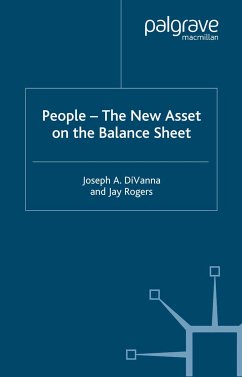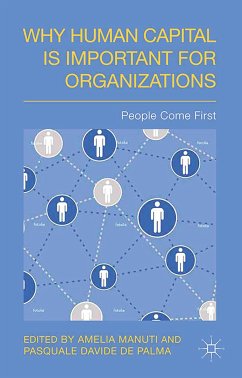
People - The New Asset on the Balance Sheet (eBook, PDF)
Versandkostenfrei!
Sofort per Download lieferbar
72,95 €
inkl. MwSt.
Weitere Ausgaben:

PAYBACK Punkte
36 °P sammeln!
Job migration across international boundaries and jobless economic "recoveries" are the latest disruptions in the workplace's human equation. To help policy makers, employers and employees to address these issues, Divanna and Rogers propose a more rigorous approach to Human Capital. They point out that the emergence of stronger measures, management techniques and balance sheet valuations was a key enabler to the emergence of dynamic financial capital markets and international exchanges. This book puts forth a framework for measuring, managing and negotiating issues of human business value. It ...
Job migration across international boundaries and jobless economic "recoveries" are the latest disruptions in the workplace's human equation. To help policy makers, employers and employees to address these issues, Divanna and Rogers propose a more rigorous approach to Human Capital. They point out that the emergence of stronger measures, management techniques and balance sheet valuations was a key enabler to the emergence of dynamic financial capital markets and international exchanges. This book puts forth a framework for measuring, managing and negotiating issues of human business value. It looks at how policymakers, employers and employees can achieve common ground when productivity threatens job loss or avoid the zero sum view that pits international trade against domestic employment.
Dieser Download kann aus rechtlichen Gründen nur mit Rechnungsadresse in A, B, BG, CY, CZ, D, DK, EW, E, FIN, F, GR, HR, H, IRL, I, LT, L, LR, M, NL, PL, P, R, S, SLO, SK ausgeliefert werden.












